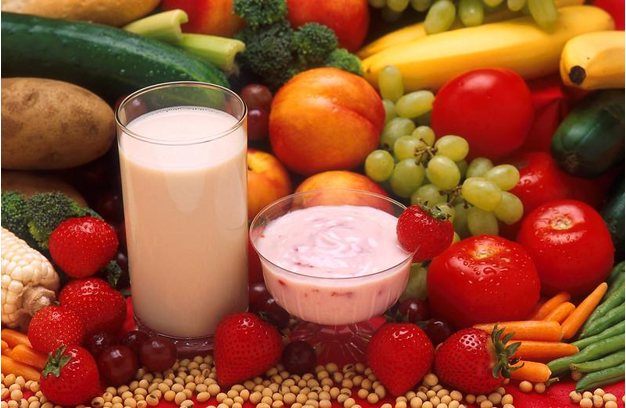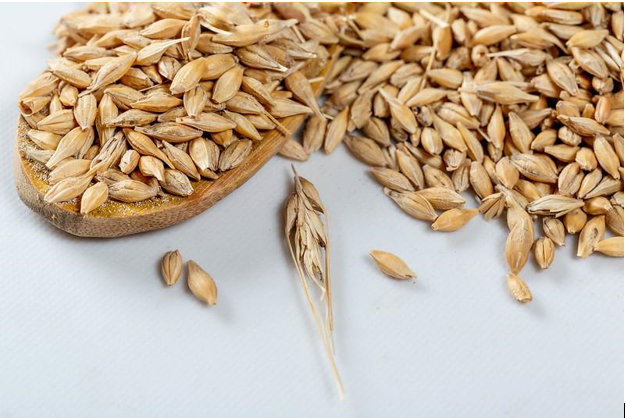According to a report made by the World Health Organization, heart disease and stroke remain the world’s top leading causes of death with 7.4 million deaths in 2016. One of the main causes of heart disease and stroke is high levels of cholesterol, especially low-density lipoprotein (LDL) or fondly called as bad cholesterol.
When there is too much bad cholesterol in the body, it causes blockage in the arteries with plaque (a condition called atherosclerosis). Due to this blockage, blood flow will be slower, thereby creating harmful blood clots. Therefore, a change in lifestyle and diet is necessary as prevention against heart disease and stroke.
In terms of diet, here are some of the cholesterol-lowering foods that will help you prevent acquiring the disease:
1. Oats
A serving of oats can give 1 to 2 grams of soluble fiber and oats contain beta-glucan. This type of soluble fiber can aid in lowering cholesterol levels and LDL levels by 5% and 7% respectively.
2. Fatty Fish
Fatty fish, like mackerel and salmon, are rich in omega-3 fatty acids. Omega-3 lowers triglycerides in the bloodstream and protects the heart at the same time by preventing the onset of abnormal heart rhythms.
3. Garlic
Garlic has been utilized for ages as a component in cooking and as a medication. This spice has a wide array of effective plant compounds such as allicin. It has been suggested that garlic reduces blood pressure with people suffering from hypertension, and it may even aid in lowering total and bad LDL cholesterol.
4. Nuts
Another remarkable nutrient-dense food that you should try is nuts. Eating nuts is good for the heart and can slightly lower bad cholesterol by 5% as they are rich in monounsaturated fats. There are various nuts, each having its own several health benefits, like walnuts for example which are rich in omega-3 fatty acids. Nuts are also rich in phytosterols which help lower cholesterol by preventing its absorption in the intestines.
5. Avocados
Avocados, like nuts, are remarkable nutrient-dense fruit and an abundant source of monounsaturated fats and fiber. Monounsaturated fats help lower LDL while fiber elevates HDL or good cholesterol.
6. Fruits and Berries

Another outstanding addition to the healthy-heart diet is, of course, fruits. There are a variety of fruits that are rich in soluble fiber which reduces cholesterol levels. Soluble fiber encourages your body to remove cholesterol and prompts your liver to stop producing this compound. One type of soluble fiber is called pectin which minimizes cholesterol levels by up to 10%. Pectin can be found in fruits such as strawberries and grapes. On the other hand, consuming berries and grapes can also help elevate good cholesterol and lessen bad cholesterol
7. Soy foods
Consuming soybean and foods originated from them like soy milk and tofu has been linked to a reduction in LDL and total cholesterol while increasing good cholesterol. Some studies suggest that soy foods can minimize heart disease factors, especially among people with hypercholesterolemia.
8. Legumes
Legumes carry a good deal of fiber, minerals, and proteins. Alternating refined grains and processed meats in your diet with legumes can lessen your risk of heart disease.
9. Dark Leafy Greens
Other cholesterol-lowering foods that you can add to your list are dark green leafy green vegetables such as kale and spinach. These foods carry lutein and other carotenoids which are associated with minimizing risks of heart disease. Lutein reduces the level of bad cholesterol in the body and blocks cholesterol from attaching to the artery walls. Carotenoids, on the other hand, act as antioxidants that remove free radicals which can cause arteries to harden.
10. Vegetables
Like fruits, there are a variety of vegetables that are rich in pectin. These include okra, eggplant, and potatoes. It is proven that vegetables offer many health benefits such as protection against the risk of heart disease.
Conclusion
A change in lifestyle is necessary to combat the risk of heart disease. Apart from incorporating physical activity in your lifestyle and avoiding harmful habits like cigarette smoking, it is also important to have a balanced, healthy, and nutrient-rich diet to prevent heart disease in the future.








































